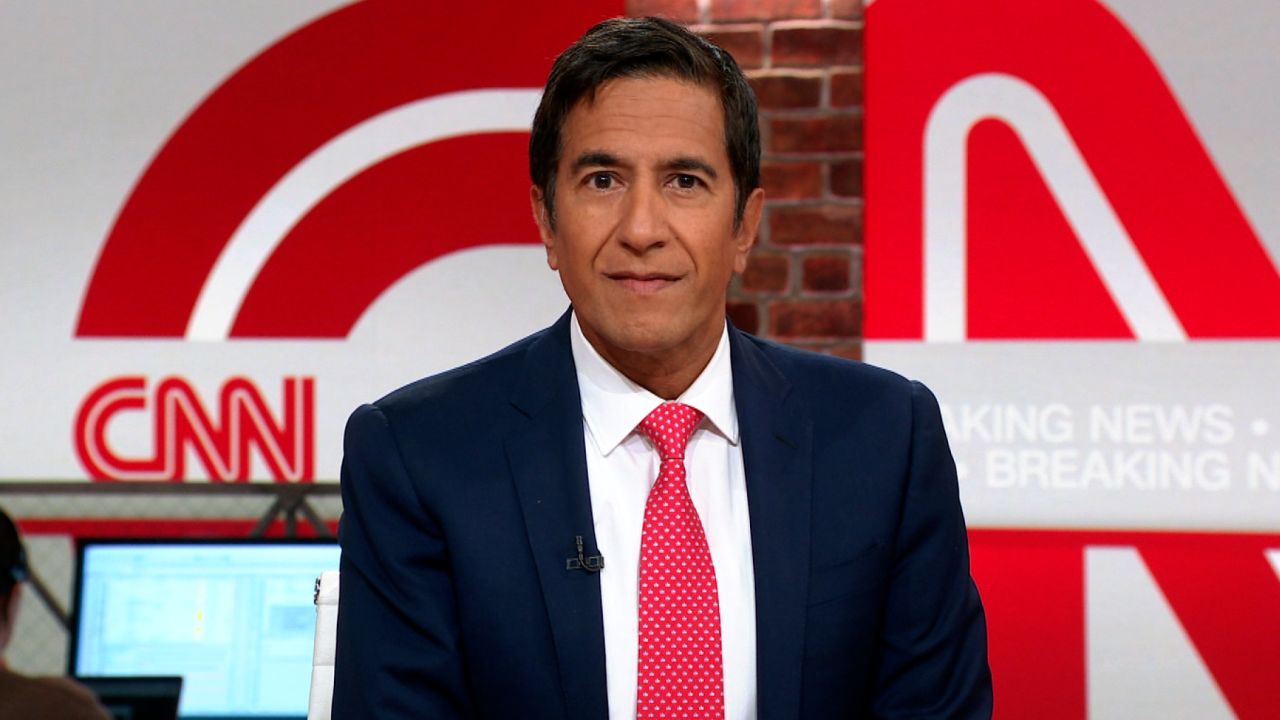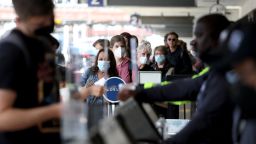What should parents know about the Moderna vaccine results? How soon could vaccines be available for young kids? Where should parents go to get them? What are tips to keep children protected in the meantime?
To help answer these questions, I spoke with CNN Medical Analyst Dr. Leana Wen, an emergency physician and professor of health policy and management at the George Washington University Milken Institute School of Public Health. She is also author of “Lifelines: A Doctor’s Journey in the Fight for Public Health” and the mother of two kids under age 5.
CNN: What should parents and caregivers know about the Moderna trial results?
Dr. Leana Wen: The most important finding from Moderna’s results is that the effectiveness of the vaccine in young kids appears to be similar to the effectiveness in older age groups. The vaccine is 51% effective at preventing symptomatic infection in children ages 6 months to under 2 years and 37% effective at preventing symptoms in children ages 2 to 5.
These numbers might seem low, but remember that the vaccines we have are less effective against the Omicron variant than previous variants. Vaccine effectiveness can be enhanced with a booster dose, which is now recommended for everyone 12 and older – and people 50 and older are able to have two booster doses.
In addition, Moderna also found there was a robust antibody response in young children that is comparable to older individuals. The dose tested in this youngest age group is 25 micrograms. Two doses of this 25-microgram vaccine produced a similar immune response as two doses of the 100-microgram standard vaccine for young adults ages 18 to 25.
Putting all of this together, I think the Moderna trial results are promising. The FDA and the US Centers for Disease Control and Prevention have a very thorough and careful vetting processes. If the FDA authorizes and the CDC then recommends the vaccine for younger kids, I will be very glad to have my little kids be vaccinated.
CNN: How soon do you think families can get their young kids the vaccine?
Wen: In the past, the FDA has reviewed applications within a few weeks of the manufacturers’ filing, and the CDC would meet about a week after the FDA. Based on this precedent, I’d estimate that the vaccine could be available for young kids by the end of May.
All of this, of course, depends on what the FDA and CDC decide. I really hope that they will proceed quickly — and carefully.
CNN: Where can parents go to get their young kids vaccinated?
Wen: I advise that parents contact their pediatrician’s offices first. They will have the most up-to-date information about vaccine availability. A lot of families are used to getting all of their kids’ shots from their pediatrician, so that’s the first place I recommend you check.
Local health departments might also have vaccination drives or mass vaccination sites. There are some pharmacies that will also vaccinate young kids, but make sure to check with your local pharmacy. Many of them have age cutoffs and are not set up to inoculate small kids.
CNN: What would you say to parents who are unsure they want to get their kids vaccinated because children tend to not get as sick as adults from Covid-19, and especially because Omicron causes less severe disease?
Wen: It’s true that Covid-19 tends to cause less severe illness in children than adults and that Omicron, compared with some prior variants, also is less severe. However, CDC numbers show that 572 children 4 years old and under were hospitalized during the Omicron surge in the United States. I think a lot of parents would do a lot to keep our children from getting seriously sick, and if a vaccine is safe and offers additional protection, we would want our kids to have it.
Vaccination also helps to reduce the risk of a rare but quite serious complication called multi-system inflammatory syndrome in children (MIS-C). According to the CDC, 95% of children ages 5 to 11 years old with MIS-C are unvaccinated. It seems likely that vaccination also reduces MIS-C and other longer-term effects for kids younger than 5, too.
CNN: What about the Pfizer vaccine? Should parents wait for that one?
Wen: Previously, Pfizer-BioNTech announced that its vaccine for kids under 5 did not produce enough effectiveness with two doses and that it was testing a third dose. Those results should be out shortly. I hope the FDA and CDC review those data quickly, too, but if the Moderna two-dose vaccine were authorized first, I wouldn’t delay getting my kids vaccinated to wait for the Pfizer data.
CNN: What if a child was already infected with the Omicron variant? Should they still get vaccinated?
Wen: This will be a question that the FDA and CDC discusses. We know that prior infection does convey some level of immunity, although that immunity wanes over time and is enhanced with vaccination.
CNN: What can parents and caregivers do to keep their children under 5 protected in the meantime?
Wen: A lot of families want to continue to be cautious around their children who are too young still to be vaccinated. There are some things they can keep doing, including surrounding their kids with others who are vaccinated and boosted and therefore are less likely to be infected with Covid-19 themselves.
Children who can mask should do so in crowded indoor settings, as can their parents and caregivers. And being outdoors remains hugely protective, so trying to have playdates and sports outside rather than inside will also help to reduce the risk of infection.







